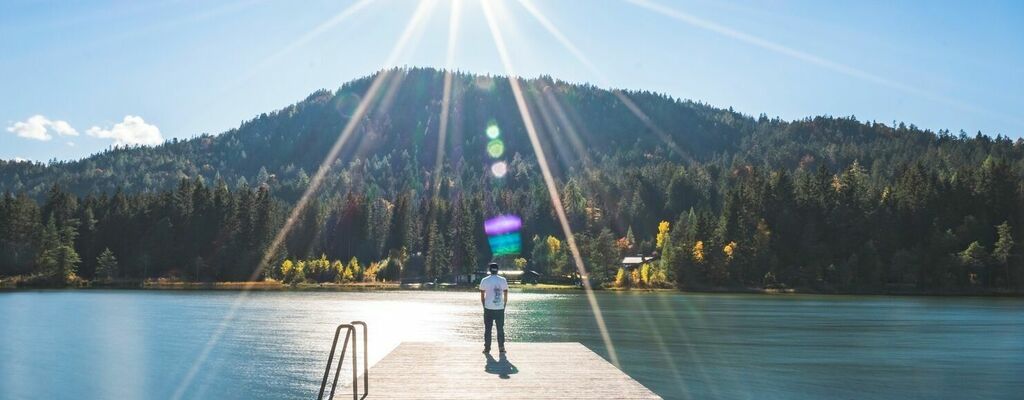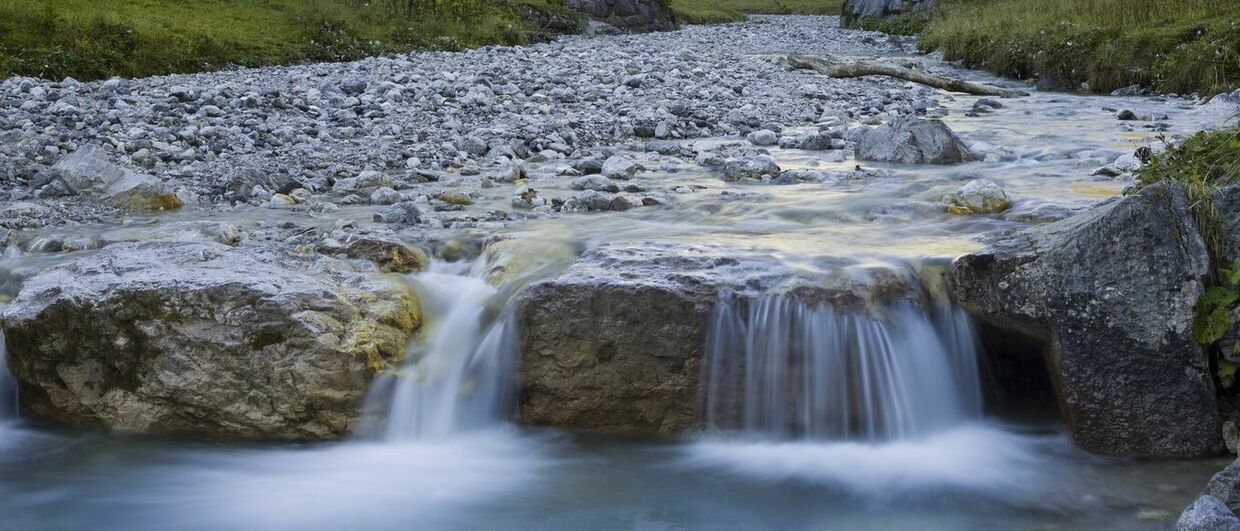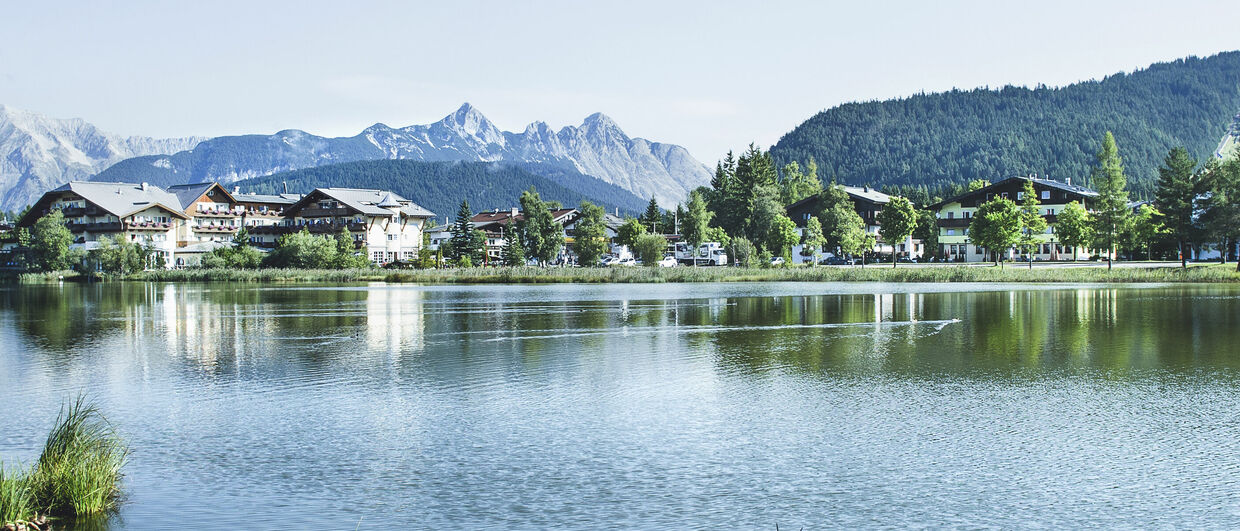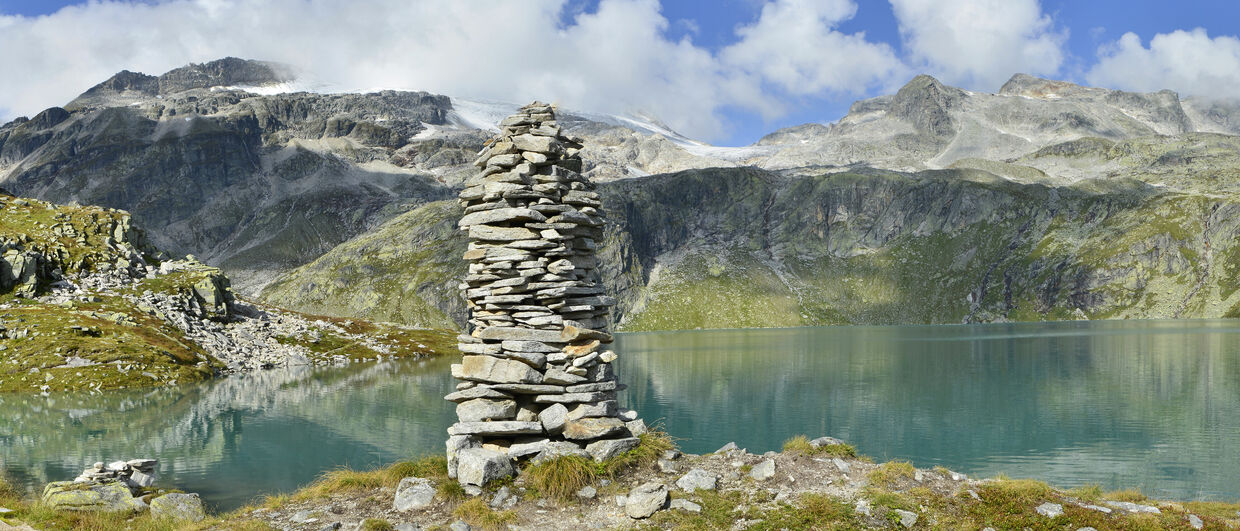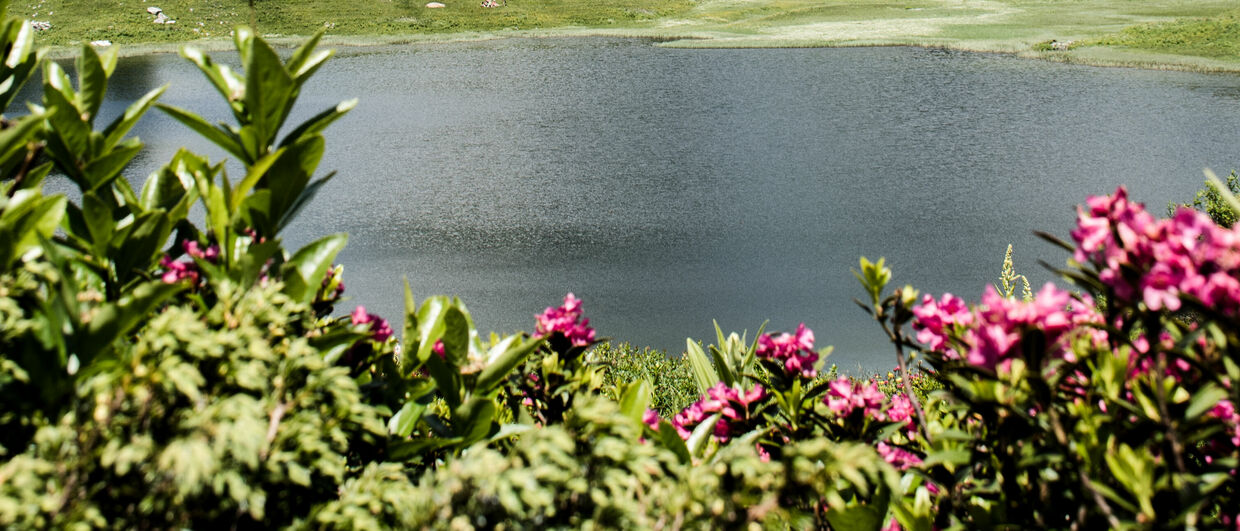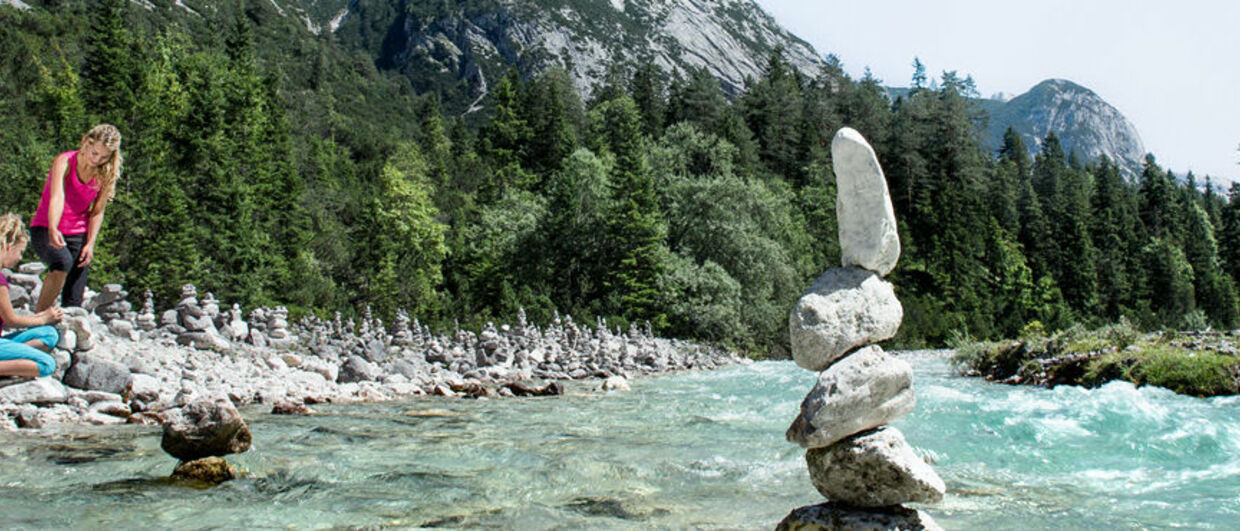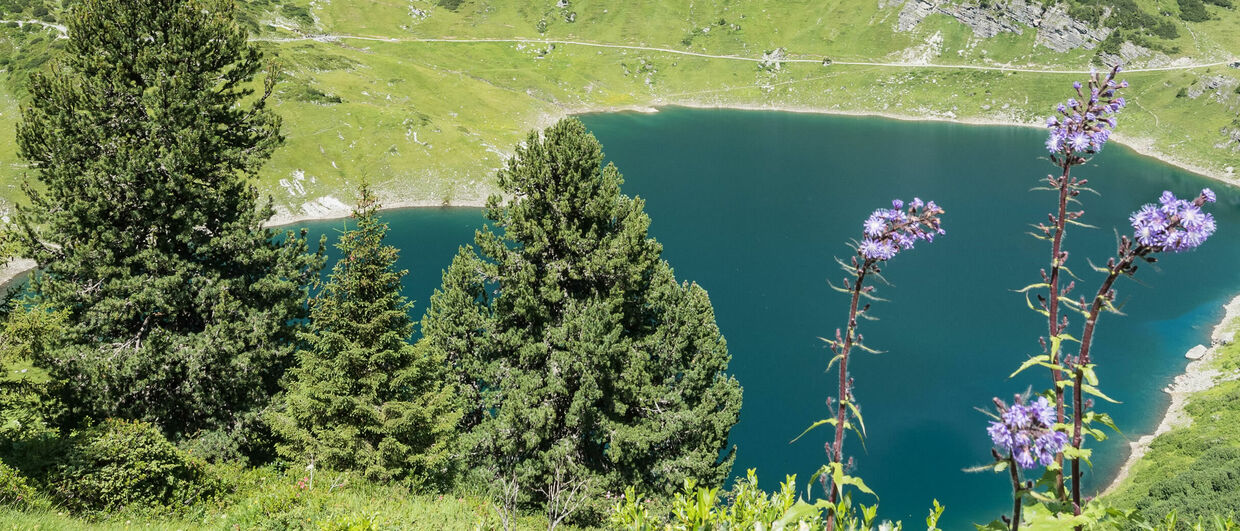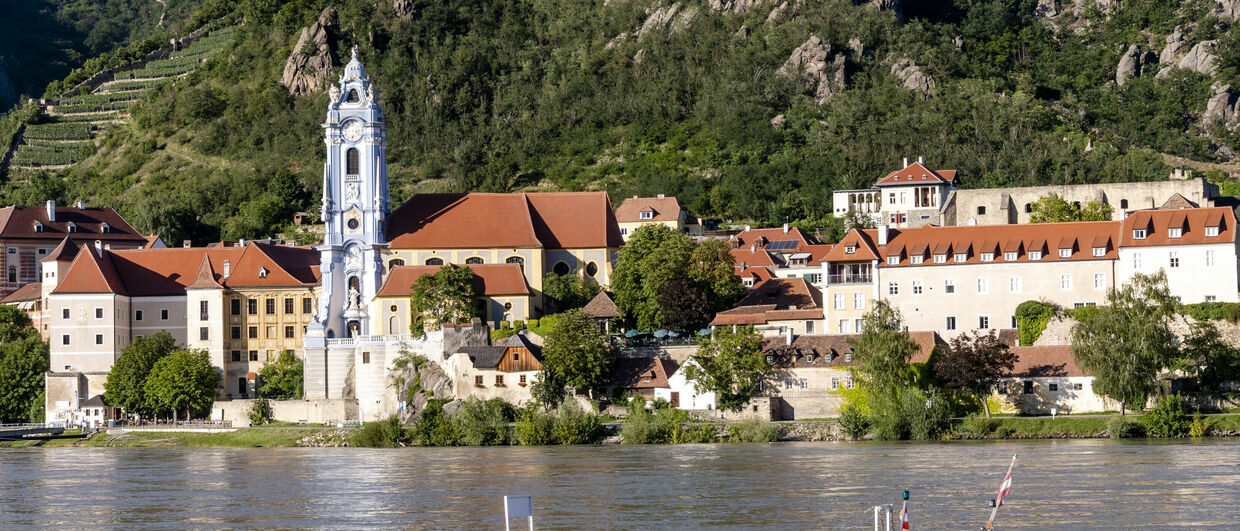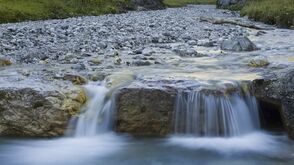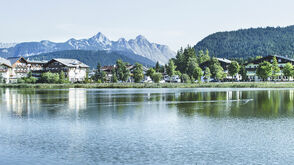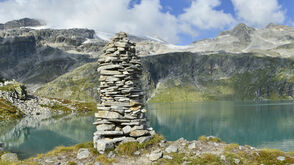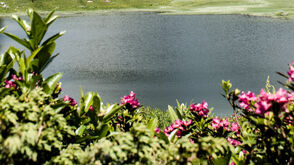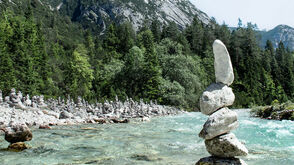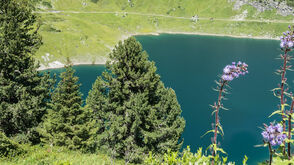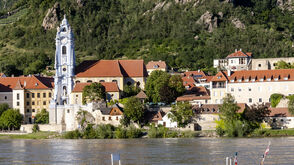Amazing Water Wonders to Visit in Austria this Summer
Mountain lakes, gorges, waterfalls, and river valleys: Austria is blessed with spectacular natural treasures.
If you want to discover Austria's natural wonders, the best way to do so is to set out on foot. In Vorarlberg, hiking trails lead to beautiful mountain lakes such as Lake Körbersee and Lake Formarinsee. The Karwendel Nature Park in Tirol is home to numerous natural treasures. Lake Wildsee is hidden away in the Kitzbühel Alps, also in Tirol.
Two awe-inspiring gorges and a cave make up the "Saalachtal Natural Wonders" in SalzburgerLand. The Raggaschlucht in Carinthia is one of the most fascinating gorges in Austria. The Wachau World Heritage Trail leads hikers through the Wachau region in Lower Austria, exploring one of the most beautiful river valleys in Europe.
MOUNTAINS AND ALPINE LAKES IN KITZBÜHEL
According to legend, the Kitzbühel Alps in Tirol owe the pretty Lake Wildsee at the foot of the Wildseeloder to sacrilegious alpine herdsmen.
Lake Wildsee, also known as Wildseelodersee or Wildalpsee, now stretches out at an altitude of 1,847 metres where the cabins of herdsmen once stood. According to legend, the alpine herdsmen who lived there fell into wasteful mischief. They played bowling games with loaves of bread and cheese, and even chunks of butter. Punishment followed immediately: lightning, thunder and heavy rains caused a lake to form on the site of the alpine huts.
Today, Lake Wildsee is completely peaceful. It is located on the hiking trail leading from the Lärchfilzkogel mountain station above Fieberbrunn to the 2,100-metre-high Wildseeloder mountain. The full tour takes around three and a half hours. Hikers can rest and recharge their batteries at the Wildseeloderhaus right on the shore of the lake. Or set off in a rowing boat and explore the lake.
KARWENDEL NATURE RESERVE NEAR INNSBRUCK
High peaks, moors, primeval forests, wild rivers and rich flora and fauna are characteristic features of Tirol‘s Karwendel Nature Park.
The Karwendel Nature Park is located north of the Inn River, stretching between Seefeld and Lake Achensee. 739 km² in size, it is the largest nature park in Austria as well as the largest conservation area in Tirol. It got its name from the Karwendel mountain range, with most of the 125 peaks located within the actual nature park region.
There are numerous natural wonders to marvel at in the unspoilt landscape. Among the most beautiful places are the wild Gleirsch Gorge, accessible from Scharnitz, and the large Ahornboden near Hall in Tirol, where an amazing number of maple trees grow, some of which are up to 600 years old. The Hafelekar, one of Innsbruck's local mountains, is also located in the Karwendel Nature Park. From the 2,334-metre-high peak, the view extends over Innsbruck and far across the Karwendel mountains. From the mountain station of the Innsbruck Nordkette cable car, the hike to the summit takes just about ten minutes.
Various themed guided tours take place all year round, ranging from golden eagle observation tours and orchid explorations to summit and gorge tours.
SERENE MOUNTAIN LAKES IN VORARLBERG
Lake Körbersee in the Bregenz Forest and Lake Formarinsee in the Arlberg region rank among Vorarlberg’s most stunning mountain lakes.
All around, mighty mountains and alpine pastures, in the middle, the glittering water surface: mountain lakes exert a special kind of fascination and are popular hiking destinations. Lake Körbersee in the Bregenz Forest is considered one of the most scenic lakes in Vorarlberg. The small lake is hidden away in a mountain hollow at an altitude of 1,654 metres, well protected by steeply rising mountains. It can only be reached on foot. From Schröcken up the Hochtannberg mountain, it takes a little over an hour to get there. When you reach your destination, the Berghotel Körbersee is a good place to stop for a bite. It is also pleasant to linger awhile on the meadows or take a break on a rock and enjoy a snack. Or take a dip in the lake. The water temperature reaches up to 24 degrees in summer.
Lake Formarinsee is another hiking destination worth putting on your bucket list. At the foot of the "Red Wall" at an altitude of 1,793 metres, it forms anew from the melt water of the surrounding mountains every year – which explains why its size always varies. On average, the lake is about 500 metres long, up to 400 metres wide and up to 17 metres deep. Several hiking trails lead to the lake with starting points in the Klostertal valley, the Großes Walsertal or in Lech am Arlberg. Lake Formarinsee can also be reached by hiking buses running from Lech through the Zugertal valley. Just a little above the lake lies the Freiburger Hütte, where food and drinks as well as overnight accommodation are available.
IMPRESSIVE GORGES IN SALZBURGERLAND
Two extraordinary gorges and a cave make up the "Saalachtal Natural Wonders" in SalzburgerLand.
Nature has created bizarrely shaped rocks, waterfalls and one of the largest cave systems in Europe where the Lofer and the Leogang mountains meet – known als the Steinernes Meer (Rocky Sea) in SalzburgerLand. The "Saalachtal Natural Wonders" are located right in the heart of it. They are made up of three natural monuments only a few kilometres apart from each other: the Vorderkaser Gorge, Lamprecht’s Cave and the Seisenberg Gorge. All three attractions can be visited individually or with an all-inclusive ticket. Visitors can explore the 400-metre-long and 80-metre-deep Vorderkaser Gorge on well-secured footbridges and steps. In Lambrecht’s Cave, the path leads 700 metres into the mountain. Rock walls line the 600-metre-long Seisenberg Gorge, which is accessible on footbridges.
Salzburger Saalachtal Tourism
CARINTHIA'S MOST FASCINATING GORGE
The Ragga Gorge in the Mölltal Valley in Carinthia features stunning steep rock faces and waterfalls.
Over the course of thousands of years, the Ragga stream has formed a deep gorge in the Mölltal valley inside the Hohe Tauern National Park. Before the Ragga Gorge was opened to visitors in 1882, miners used it as a shortcut to the Raggaalm pasture, where they mined iron ore until the 18th century.
800 metres in length and up to 200 metres deep, the Ragga Gorge is one of the most fascinating gorges in Austria. Visitors hike through the wild landscape crossing over footbridges and along the path that becomes narrower and narrower towards the top. Far below, the stream rushes by, in some places gushing over as waterfalls and bubbling in so-called "kolks," semi-circular holes that have been eroded into the rocks by the water – many more interesting facts can be read on information boards along the trail.
A hike through the gorge is especially recommended on hot summer days. The light mist of water is pleasantly cool on the skin. The trailhike takes around 60 to 90 minutes to complete. The Ragga Gorge is open from the beginning of May to the end of October, depending on the weather.
LOWER AUSTRIA: A RIVER VALLEY STEEPED IN HISTORY
On the Wachau World Heritage Trail in Lower Austria, hikers circumnavigate one of Europe’s most beautiful river landscapes in 14 stages.
Experience how stimulating hiking can be on the 14 stages of the Wachau World Heritage Trail. In a leisurely up-and-downhill manner, the 180-kilometre long-distance hiking trail frames one of the most beautiful stretches along the Danube: the Wachau, a UNESCO World Heritage Site since 2000. The landscape changes from stage to stage. Steep vineyards, terraced and enclosed by stone walls, are characteristic for the northern bank of the Danube. Here await the picturesque wine villages of Krems, Dürnstein, Weissenkirchen and Spitz. On the quiet southern bank between Melk and Mautern, the foothills of the Dunkelstein Forest are an impressive sight. Vineyards and orchards extend along the flatter sections of the shore. From the elevated areas, wonderful panoramic views open up. The monasteries of Melk and Göttweig, churches, castle ruins, wineries and museums offer insights into the rich history of the region.
Winegrowers and innkeepers make sure visitors can enjoy all their culinary delights: the wines are among the best in Austria and regional specialities are served in award-winning restaurants, rustic inns and numerous wine taverns.
As always, we are happy to assist you in planning your research trip. Please get in touch at pressuk@austria.info.

